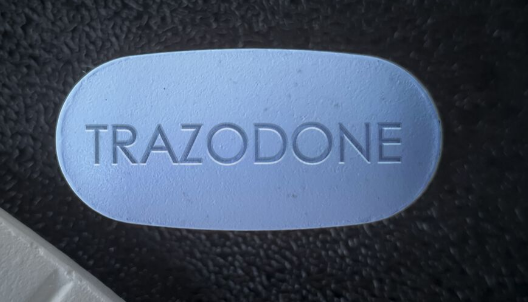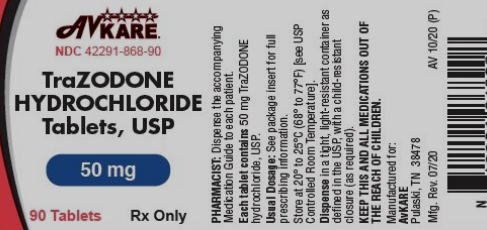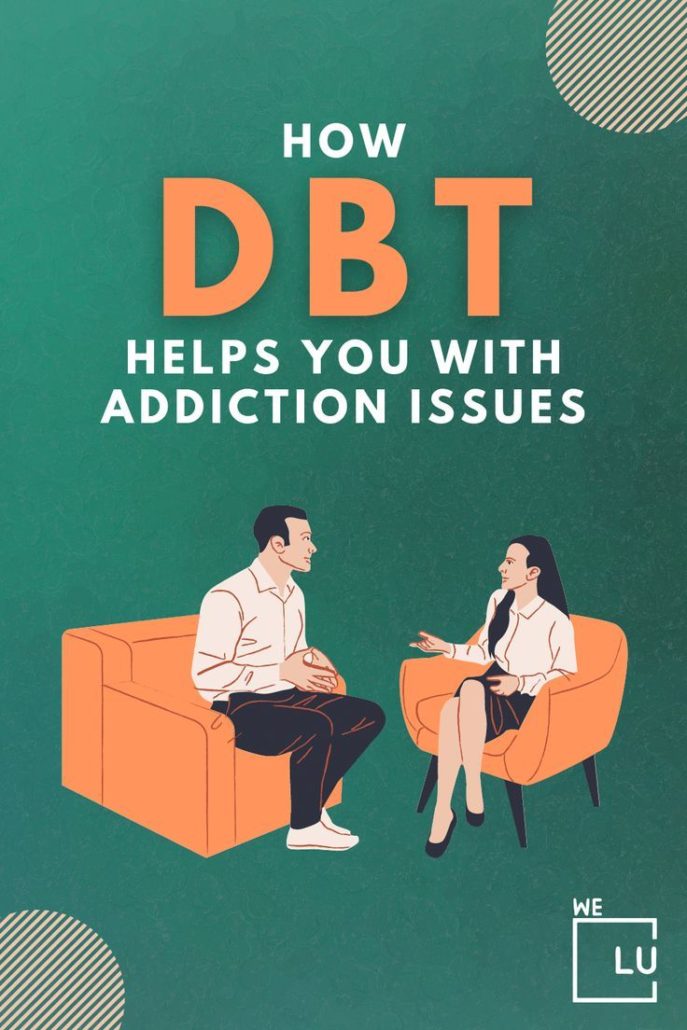How Long Does Trazodone Last?
Many patients wonder “how long does trazodone last?”. The answer to this depends on what the medication is being used to treat. For example, when treating depression, Trazodone works in approximately one to two weeks before the benefits are noticeable. But, when treating insomnia, the effects take anywhere from 30 minutes to a couple of hours. While the Trazodone mechanism of action results in effective treatment for many, it is not successful in every case. Patients should always work closely with a doctor when using the drug.
Trazodone is habit-forming and can be addictive, but not in the same way that drugs like meth, cocaine, or heroin are. Rather than an all-consuming physical addiction, a person who abuses Trazodone may develop a physical dependence on it and a psychological addiction to it. Dependence to Trazodone is marked by withdrawal symptoms when the person reduces their dosage or ceases use completely. Alongside dependence, a person may also develop a psychological addiction, in which they might feel they have to use it to feel normal or be happy.
Although this prescription drug cannot get you high in the same way drugs as stimulants or opioids can, it can have sedative effects. Despite the lack of euphoria in a Trazodone high, the medication produces a calming and relaxing effect that users might find desirable. Trazodone abuse can happen in people to whom it’s been prescribed and in people who take it for recreational purposes.
What are the Side Effects of Trazodone?
Trazodone hydrochloride is the generic name of this drug. Brand names for trazodone include Desyrel, Desyrel Dividose, and Oleptro. It is is an FDA-approved antidepressant for treating major depressive disorders. Non-FDA-approved use induces sedation in patients with sleep problems and anxiety. Because of its serotonergic receptor antagonism and serotonin reuptake inhibiting effects, Trazodone is also used off-label for Alzheimer’s disease, anxiety, substance abuse, fibromyalgia, and bulimia.
Do not use this medicine if you have used an MAO inhibitor in the past 14 days. A dangerous drug interaction could happen. MAO inhibitors include linezolid, isocarboxazid, methylene blue injection, phe nelzine, tranylcypromine, and others. Tell your doctor if you also take opioid medicine, stimulant medicine, herbal products, or medicine for mental illness, depression, Parkinson’s disease, migraine headaches, serious infections, or prevention of nausea and vomiting.
Trazodone is generally well tolerated. However, some individuals do experience side effects when taking it. The most common trazodone side effects are:
- Drowsiness or sedation
- Dizziness
- Constipation
- Blurred vision
These side effects may lessen or stop altogether once your body gets used to the medication. Trazodone’s sedating effect is so common, affecting up to 41% of users, that the drug is often prescribed for sleep issues such as insomnia. Do not engage in potentially hazardous activities, including driving, until you know how this drug affects you.
Can Trazodone Cause Serotonin Syndrome?
Certain trazodone side effects require immediate medical attention. Taking higher doses of this medication or using it in combination with other drugs that affect serotonin levels can lead to serotonin syndrome. Serotonin syndrome is a serious and potentially life-threatening illness caused by too much serotonin in the body. Symptoms of serotonin syndrome include agitation, restlessness, confusion, hallucinations, accelerated heart rate, seizures, and loss of consciousness.
Other possible dangerous trazodone side effects that require immediate medical attention include:
- Unusual bleeding or bleeding that won’t stop (an increased risk when taking other blood-thinning drugs such as anticoagulants, aspirin, and nonsteroidal anti-inflammatory drugs or NSAIDs)
- Irregular heartbeat
- Low blood pressure
- Low blood sodium (symptoms include headache, trouble concentrating, memory issues, weakness, and, in severe cases, hallucination, fainting, seizures, and coma)
- Mania or hypomania (abnormally elevated mood or irritability)
- Painful and prolonged erection of the penis for six hours or more, a condition called priapism
What are the Signs of a Trazodone Overdose?
Like all antidepressants, this prescription drug carries a black box warning. This warning cites an increased possibility of suicidal thinking or behavior in children, teens, and young adults (those under 24 years of age) when taking this drug. Call your healthcare provider or a poison control center immediately if you or a loved one have potentially overdosed on trazodone.
Symptoms of trazodone overdose may include:
- Drowsiness
- Vomiting
- Painful erection that won’t go away
- Seizures
- Slower or faster heartbeat
- Trouble breathing

Skip To:
- How Long Does Trazodone Last?
- What are the Side Effects of Trazodone?
- Can Trazodone Cause Serotonin Syndrome?
- What are the Signs of a Trazodone Overdose?
- Trazodone Addiction Statistics
- Trazodone Drug Fact Sheet
- How Long Does Trazodone Stay in Your System?
- How Long Does Trazodone Stay in Your System? Blood Test
- How Long Does Trazodone Stay in Your System? Urine Test
- How Long Does Trazodone Stay in Your System? Saliva Test
- How Long Does Trazodone Stay in Your System? Hair Test
- How Long Does It Take for Trazodone to Work?
- How Long Does It Take for Trazodone to Kick in?
- How Long Does It Take for Trazodone to Wear Off?
- How Long Does Trazodone Last for Sleep?
- Factors that Affect How Long Trazodone Last
- Treatment for Trazodone Abuse
Learn More:
Get Help. Get Better. Get Your Life Back.
Searching for Accredited Drug & Alcohol Rehab Centers Near You? Or Mental Health Support?
Even if you have failed previously, relapsed, or are in a difficult crisis, we stand ready to support you. Our trusted behavioral health specialists will not give up on you. Call us when you feel ready or want someone to speak to about therapy alternatives to change your life. Even if we cannot assist you, we will lead you wherever you can get support. There is no obligation. Call our hotline today.
FREE Addiction Hotline – Call 24/7Trazodone Addiction Statistics
Trazodone is a long-term prescription medicine. Trazodone use for months or years is not intrinsically harmful, but it can lead to dependence. A person has developed a reliance when they require Trazodone to feel normal or when they experience withdrawal symptoms if they stop taking it. Antidepressants may or may not be addictive because most individuals don’t normally crave them. Nevertheless, unpleasant withdrawal symptoms may occur in patients who discontinue using Trazodone abruptly. Patients who no longer want to take this drug should speak with a healthcare professional about gradually cutting back on their dosage until it is okay to stop taking it altogether.
210,731
Estimated number of prescriptions in the United States (2020)
Source: NCBI
12.57%
Average total drug cost (USD) per prescription.
Source: NCBI
5,294,364
Estimated number of patients in the United States (2020)
Source: NCBI
Trazodone Drug Fact Sheet
Why is this medication prescribed?
Trazodone is used to treat depression. Trazodone is in a class of medications called serotonin modulators. It works by increasing the amount of serotonin, a natural substance in the brain that helps maintain mental balance.
Clinical Data
Trade names Desyrel, Trittico
Other names AF-1161
AHFS/Drugs.com Monograph
MedlinePlus a681038
License data
US DailyMed: Trazodone
Dependence
liability None
Addiction
liability None
Routes of
administration by mouth
ATC code
N06AX05 (WHO)
Pharmacokinetic Data
Bioavailability By mouth: 65%
Protein binding 89–95%
Metabolism Liver (CYP3A4, CYP2D6, CYP1A2?)
Metabolites mCPP
Onset of action By mouth: 1 hour (Tmax)
Elimination half life Trazodone (IR): 4–15 hours
• Trazodone (ER): 9–13 hours
• mCPP: 3–16 hours
Excretion Urine: 70–75%
Feces: 21%
Important Administration Instructions
Trazodone hydrochloride tablets can be swallowed whole or administered as a half tablet by breaking the tablet along the score line.
Trazodone hydrochloride tablets should be taken shortly after a meal or light snack.
Other Uses for This Medicine
Trazodone is also sometimes used to treat insomnia and schizophrenia (a mental illness that causes disturbed or unusual thinking, loss of interest in life, and strong or inappropriate emotions); anxiety (excessive worry).
Trazodone is also sometimes used to control abnormal, uncontrollable movements that may be experienced as side effects of other medications and for the management of alcohol dependence. Talk to your doctor about the possible risks of using this medication for your condition.
WARNING: SUICIDAL THOUGHTS AND BEHAVIORS
Antidepressants increased the risk of suicidal thoughts and behaviors in pediatric and young adult patients in short-term studies. Closely monitor all antidepressant-treated patients for clinical worsening, and for emergence of suicidal thoughts and behaviors [see Warnings and Precautions. Trazodone hydrochloride tablets are not approved for use in pediatric patients [see Use in Specific Populations.

How Long Does Trazodone Stay in Your System?
If one is wondering, how long does trazodone show up on a drug test? The answer may vary depending on different factors such as the dosage of Trazodone consumed and the biological factors of the patient. Moreover, there are different tests where Trazodone can be screened.
How Long Does Trazodone Stay in Your System? Blood Test
A blood test is usually done when there is a suspicion that the person is still actively under the influence of a drug. Every 5-13 hours, the medication loses 50% of its concentration in the blood. Therefore, Trazodone metabolites can be traced in the blood for up to three days.
How Long Does Trazodone Stay in Your System? Urine Test
How long does trazodone stay in your urine? The parent drug, Trazodone, is eliminated from the body in a maximum of two days, but some of its metabolites can linger for longer. That is why urine tests can trace metabolites even 26 days after the last dose.
How Long Does Trazodone Stay in Your System? Saliva Test
Saliva testing can show drug use in the first few hours after administration, a time window that could be missed by urine testing. As of today, there is no study yet about how long Trazodone can stay in the saliva. However, its primary metabolite, meta-chlorophenylpiperazine, often causes false positives on amphetamines and this can be tested in the saliva for up to 3 days.
How Long Does Trazodone Stay in Your System? Hair Test
It is preferably safer to stop Trazodone, like any other medication, for about three months before going for any drug screening, as any substance one takes may remain in hair cells for up to 90 days. The standard hair drug testing offers up to a 90-day window for drug detection. However, when stopping a medication, a doctor’s medical intervention is required.

Get Your Life Back
Find Hope & Recovery. Get Safe Comfortable Detox, Addiction Rehab & Mental Health Dual Diagnosis High-Quality Care at the We Level Up Treatment Centers Network.
Hotline (877) 378-4154How Long Does It Take for Trazodone to Work?
Trazodone can take one to two weeks to start to work, and it can be four to six weeks before you feel the full benefit. Give the medicine at least six weeks to work. How long does it take trazodone to work? Some people feel worse during the first few weeks of treatment before they begin to feel better.
How Long Does It Take for Trazodone to Kick in?
When prescribed as an antidepressant, it should be taken at bedtime. How long does it take for trazodone to kick in for sleep? Trazodone works rather quickly as a sleep aid and typically takes about 30 minutes to make you drowsy. Trazodone is a prescription medication that has been used to treat depression disorders and sleep disorders. At low doses, trazodone helps you go to sleep and stay asleep at night.
How Long Does It Take for Trazodone to Wear Off?
Trazodone has a half-life between five and 9 hours. This means it will take your body (on average) around seven hours to eliminate half of the drug. In a healthy adult, a single dosage of Trazodone can remain in the body for one to three days. Since trazodone is metabolized by the liver, people with liver-related conditions may experience a longer half-life.
First-class Facilities & Amenities
World-class High-Quality Addiction & Mental Health Rehabilitation Treatment
Rehab Centers TourRenowned Addiction Centers. Serene Private Facilities. Inpatient rehab programs vary.
Addiction Helpline (877) 378-4154Proven recovery success experience, backed by a Team w/ History of:
15+
Years of Unified Experience
100s
5-Star Reviews Across Our Centers
10K
Recovery Success Stories Across Our Network
- Low Patient to Therapist Ratio
- Onsite Medical Detox Center
- Comprehensive Dual-Diagnosis Treatment
- Complimentary Family & Alumni Programs
- Coaching, Recovery & Personal Development Events
How Long Does Trazodone Last for Sleep?
When used to treat insomnia, Trazodone should be taken right before bed. When taken at the dosage given to you, it’ll help you stay asleep for a full seven to nine hours of sleep. One of the most common side effects of taking trazodone is drowsiness. How long does trazodone take to kick in? It may take 1 to 3 hours before the effect kicks in so it is normally recommended to take the drug at least 30 minutes to one hour before going to bed.
Trazodone usage can cause a decrease in sodium levels in the body, a disruption of the nervous system or serotonin syndrome. The most common side effects include drowsiness (including feeling groggy the next day) Dizziness (including an increased risk of fainting/falling)

World-class, Accredited, 5-Star Reviewed, Effective Addiction & Mental Health Programs. Complete Behavioral Health Inpatient Rehab, Detox plus Co-occuring Disorders Therapy.
CALL (877) 378-4154End the Addiction Pain. End the Emotional Rollercoaster. Get Your Life Back. Start Drug, Alcohol & Dual Diagnosis Mental Health Treatment Now. Get Free No-obligation Guidance by Substance Abuse Specialists Who Understand Addiction & Mental Health Recovery & Know How to Help.

Factors that Affect How Long Trazodone Last
Trazodone half-life is between five and 9 hours. This means it will take your body (on average) around seven hours to eliminate half of the drug.
In a healthy adult, a single dosage of Trazodone can remain in the body for one to three days.
But this is not the same for everyone. How long does Trazodone last in your system? There are many factors that influence how long this drug can stay in your system, including:
- Dosage: The higher the dose, the longer Trazodone metabolites remain in your system. Smaller doses are generally, excreted faster than larger doses.
- Age: Some studies show the half-life of Trazodone is longer in older adults.
- Weight: Body mass and fat can affect how fast the drug metabolizes and how it’s stored in fat cells.
- Frequency of use: Taking the drug over an extended period of time means it will take longer to leave your system.
- Last time taken: Certain tests can detect it only after a few hours or days of taking it. Others can detect it after three months.
- Genetics and metabolism: These influence liver function and the enzymes that metabolize Trazodone.
Another variable to consider is the type of drug test. Read on to learn how long the medication can stay in your urine, hair, blood, and saliva.
Experience Transformative Recovery at the We Level Up Treatment Center.
See our authentic success stories. Get inspired. Get the help you deserve.



Start a New Life
Begin with a free call to an addiction & behavioral health treatment advisor. Learn more about our dual-diagnosis programs. The We Level Up treatment center network delivers various recovery programs at each treatment facility. Call to learn more.
- Personalized Care
- Caring Accountable Staff
- World-class Amenities
- Licensed & Accredited
- Renowned w/ 5-Star Reviews
We’ll Call You
Treatment for Trazodone Abuse
To determine the most effective ways to treat Trazodone side effects and co-occurring alcohol addiction, it’s crucial to assess all the symptoms accurately. When a mental health professional has evaluated the symptoms, it may be determined that another form of depression is present and needs a particular treatment. Very often, some combination of medication, psychotherapy, and lifestyle changes are effective for coping with functional.
Medically Assisted Detox
Detox is often considered the first stage of treatment. It will help you navigate the complicated process of alcohol withdrawal but doesn’t address patterns of thought and behavior that contribute to alcohol use. Various treatment approaches and settings can help provide the ongoing support necessary to maintain long-term sobriety after you complete detox.
Cravings are very common side effects of Trazodone during detox and can be challenging to overcome. This often leads to relapse. Constant medical care provided during inpatient treatment helps prevent relapse. Clinicians can give the necessary medication and medical expertise to lessen cravings and the effects of alcohol withdrawals.
Psychotherapy for Depression
Several different modalities of psychotherapy have been used in the treatment of depression, including:
- Cognitive Behavioral Therapy (CBT) – is an effective treatment that involves changing both the patterns of negative thoughts and the behavioral routines which are affecting the daily life of the depressed person for various forms of depression.
- Person–centered therapy is a strategy that allows and encourages clients to understand and resolve their concerns in a safe, supportive environment.
- Solution Focused Therapy – an approach interested in solutions that can be quickly implemented with a simple first step leading to further positive consequences.
Dual Diagnosis Treatment
Alcoholism and mental health disorders often co-occur. In many cases, traumatic experiences can result in a mental health disorders and substance abuse. Dual diagnosis rehabilitation treats both of these issues together. The best approach for the treatment of dual diagnosis is an integrated system. This strategy treats both the substance abuse problem and the mental disorder simultaneously. Regardless of which diagnosis (mental health or substance abuse problem) came first, long-term recovery will depend largely on the treatment for both disorders done by the same team or provider.
Medication-Assisted Treatments
Medication-Assisted Treatments (MAT) for alcohol use and mental health disorders are commonly used in conjunction with one another. This includes the use of medications and other medical procedures. During your rehab, the staff from your treatment facility will help you identify what caused your addiction and teach you skills that will help you change your behavior patterns and challenge the negative thoughts that led to your addiction. Sometimes, the pressures and problems in your life lead you to rely on substances to help you forget about them momentarily.
Contact one of our helpful treatment specialists today if you or a loved one are struggling with long-term substance abuse, Trazodone side effects, and other co-occurring mental health conditions such as depression. We Level Up NJ can provide information on dual diagnosis and detox programs.

Search We Level Up NJ “How Long Does Trazodone Last?” Topics & Resources
Sources
[1] Trazodone: MedlinePlus Drug Information
[2] Trazodone – StatPearls – NCBI Bookshelf (nih.gov)
[3] Off-Label Trazodone Half Life of Trazodone Prescription: Evidence, Benefits and Risks – PubMed (nih.gov)
[4] Serotonin Syndrome in a Patient on Trazodone and Duloxetine Who Received Fentanyl following a Percutaneous Liver Biopsy – PMC (nih.gov)
[6] NIMH » Depression (nih.gov)
[7] Depression | NIMH Information Resource Center (nih.gov)
[8] Prescription CNS Depressants DrugFacts | National Institute on Drug Abuse (NIDA) (nih.gov)
[10] Trazodone and Alcohol Dangerous Mix, Drug Abuse & Treatment (welevelup.com)